Concawe Review
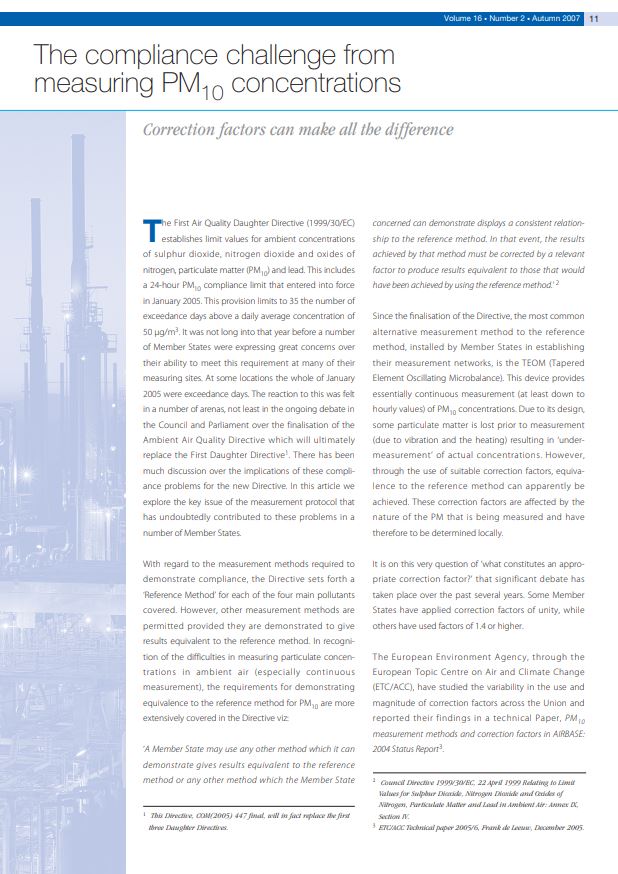
Concawe Reviews
The compliance challenge from measuring PM10 concentrations
The First Air Quality Daughter Directive (1999/30/EC) establishes limit values for ambient concentrations of sulphur dioxide, nitrogen dioxide and oxides of nitrogen, particulate matter (PM10) and lea...
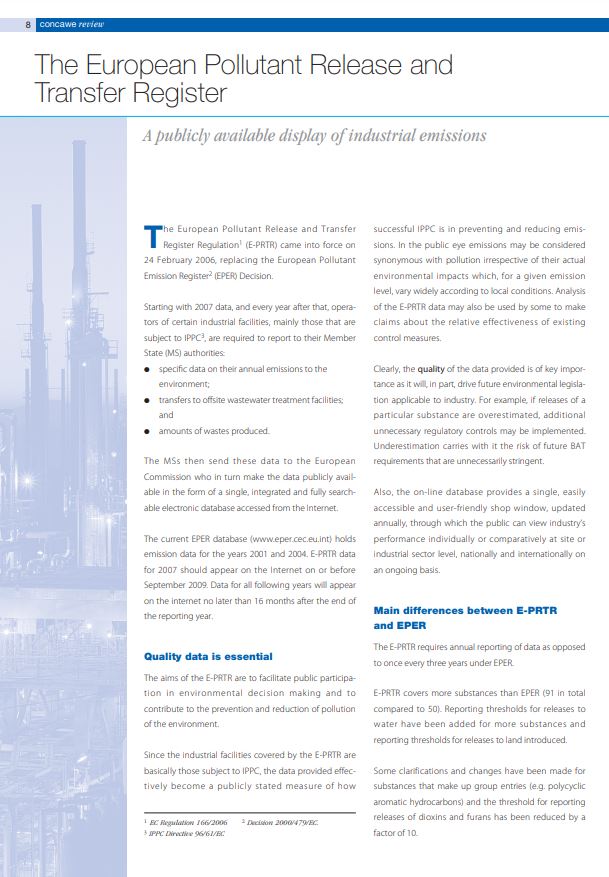
Concawe Reviews
The European Pollutant Release and Transfer Register
The European Pollutant Release and Transfer Register Regulation (E-PRTR) came into force on 24 February 2006, replacing the European Pollutant Emission Register (EPER) Decision....
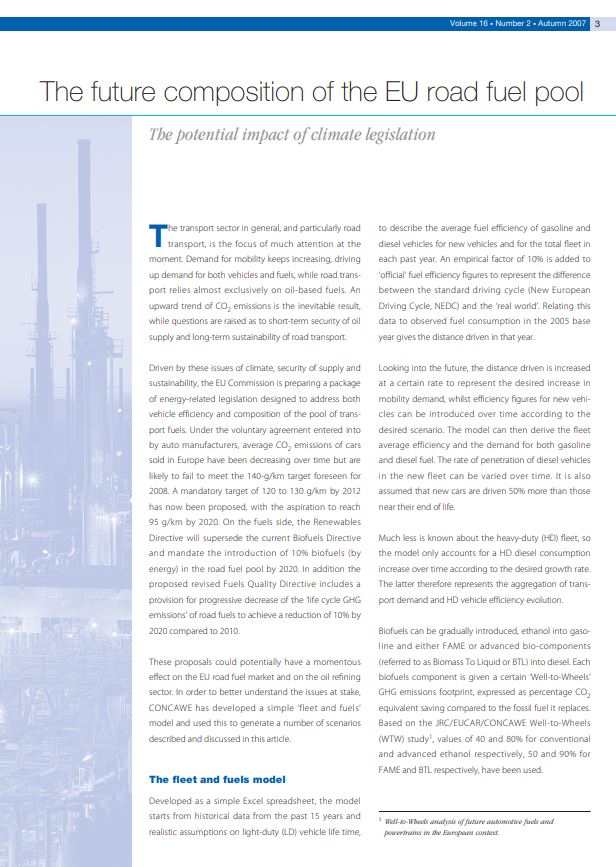
Concawe Reviews
The future composition of the EU road fuel pool
The transport sector in general, and particularly road transport, is the focus of much attention at the moment. Demand for mobility keeps increasing, driving up demand for both vehicles and fuels, whi...

Concawe Reviews
CONCAWE Review – Autumn 2007
Volume 16 • Number 2: Environmental issues are, in many ways, at the heart of public concerns today. Quite naturally CONCAWE gets involved in these issues and brings its contribution in a variety of...
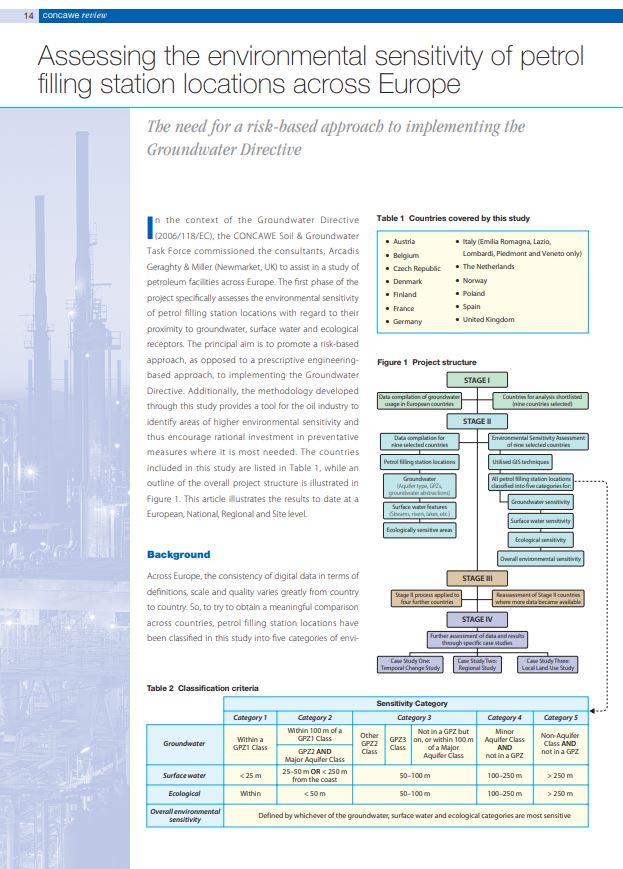
Concawe Reviews
Assessing the environmental sensitivity of petrol filling station locations across Europe
In the context of the Groundwater Directive (2006/118/EC), the CONCAWE Soil & Groundwater Task Force commissioned the consultants, Arcadis Geraghty & Miller (Newmarket, UK) to assist in a stud...
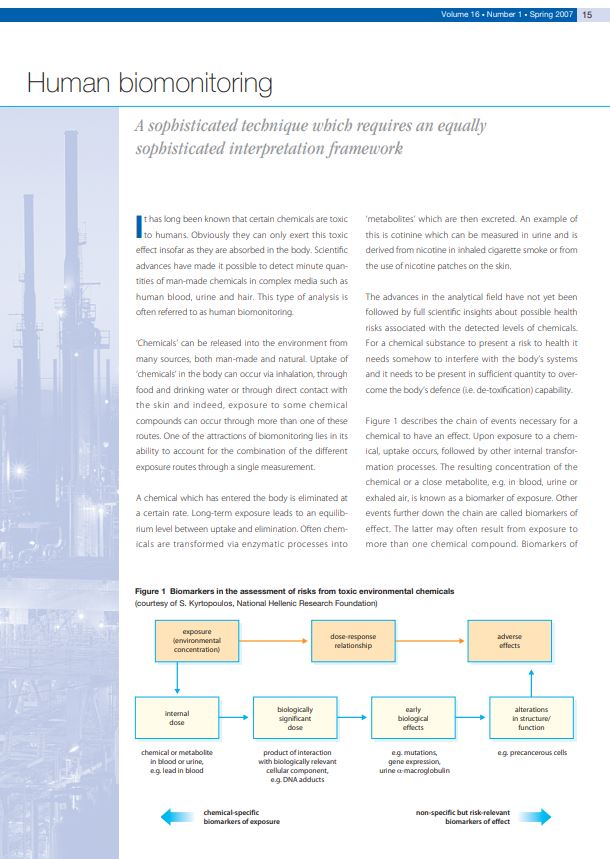
Concawe Reviews
Human biomonitoring
It has long been known that certain chemicals are toxic to humans. Obviously they can only exert this toxic effect insofar as they are absorbed in the body.
Scientific advances have made it poss...
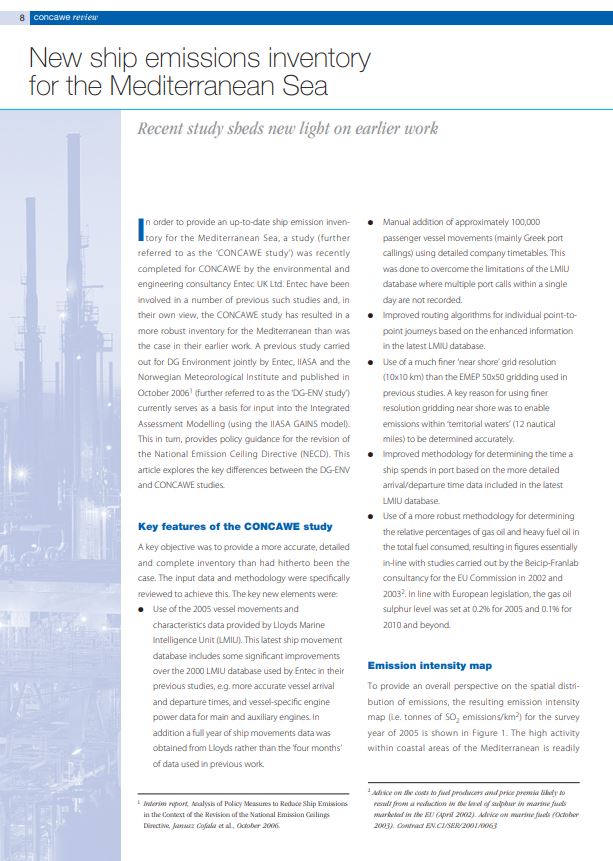
Concawe Reviews
New ship emissions inventory for the Mediterranean Sea
In order to provide an up-to-date ship emission inventory for the Mediterranean Sea, a study (further referred to as the ‘CONCAWE study’) was recently completed for CONCAWE by the environmental...
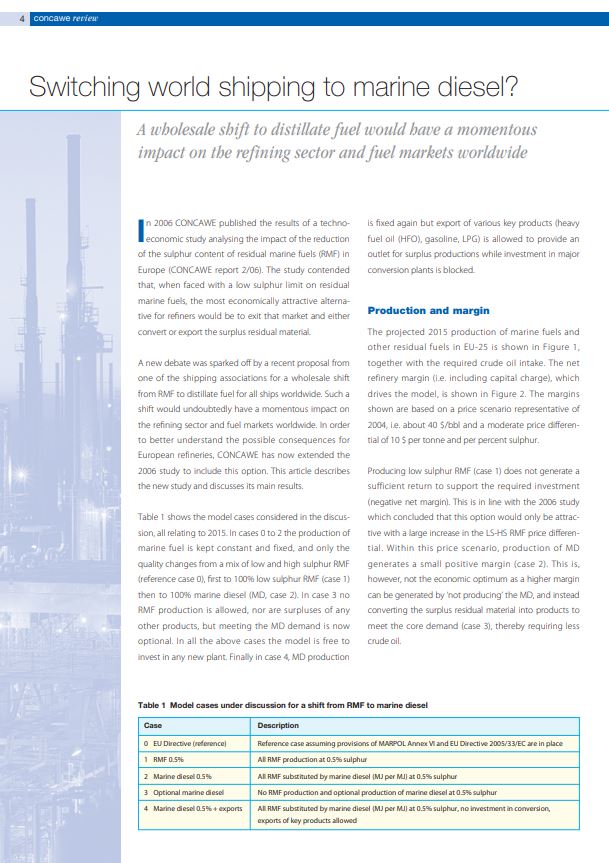
Concawe Reviews
Switching world shipping to marine diesel?
In 2006, CONCAWE published the results of a techno-economic study analysing the impact of the reduction of the sulphur content of residual marine fuels (RMF) in Europe (CONCAWE report 2/06).
The st...
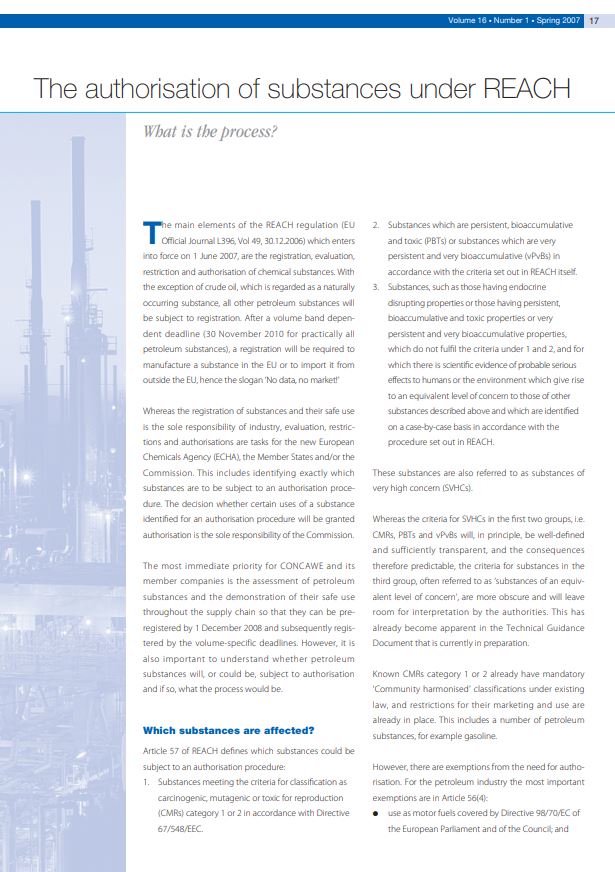
Concawe Reviews
The authorisation of substances under REACH
The main elements of the REACH regulation (EU Official Journal L396, Vol 49, 30.12.2006) which enters into force on 1 June 2007, are the registration, evaluation, restriction and authorisation of c...
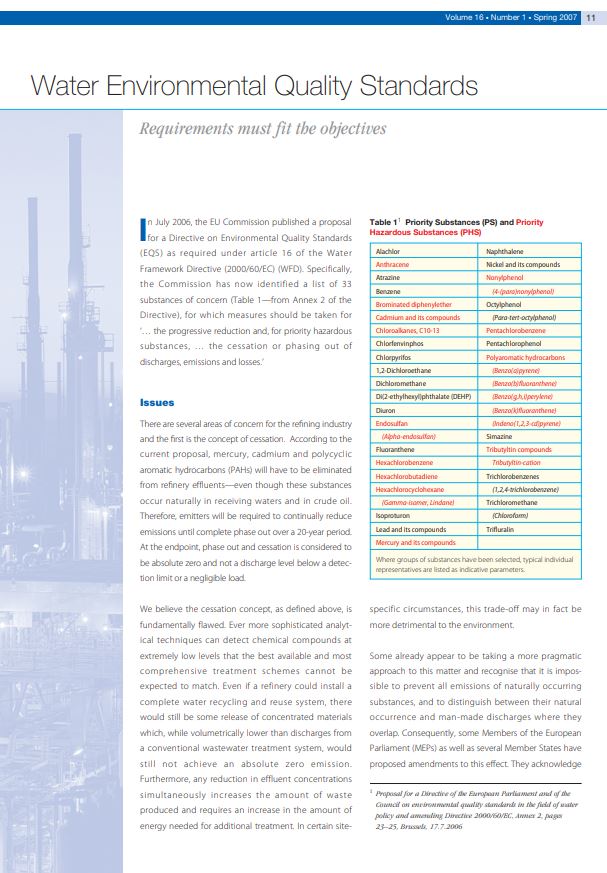
Concawe Reviews
Water Environmental Quality Standards
In July 2006, the EU Commission published a proposal for a Directive on Environmental Quality Standards (EQS) as required under article 16 of the Water Framework Directive (2000/60/EC) (WFD).
Sp...

Concawe Reviews
CONCAWE Review – Spring 2007
Volume 16 • Number 1: At the beginning of 2007, the EU Commission launched a series of proposals that will have a profound impact on our industry and on European society in general....
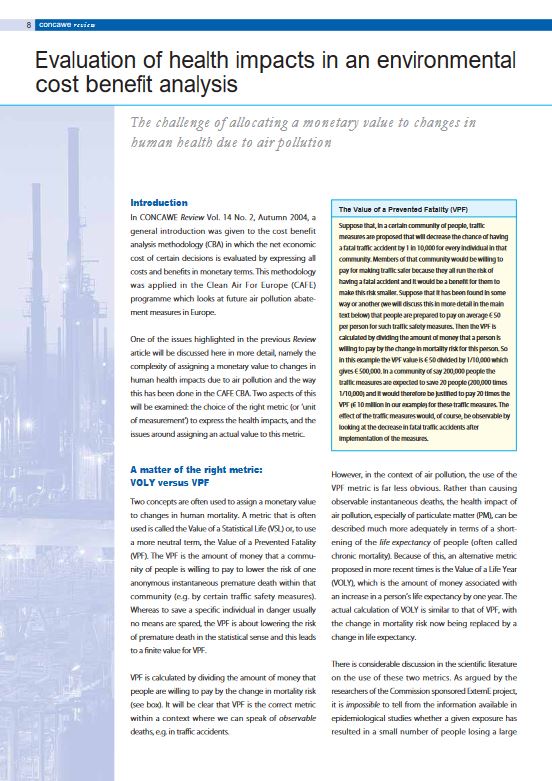
Concawe Reviews
Evaluation of health impacts in an environmental cost benefit analysis
In CONCAWE Review Vol. 14 No. 2, Autumn 2004, a general introduction was given to the cost benefit analysis methodology (CBA) in which the net economic cost of certain decisions is evaluated by exp...
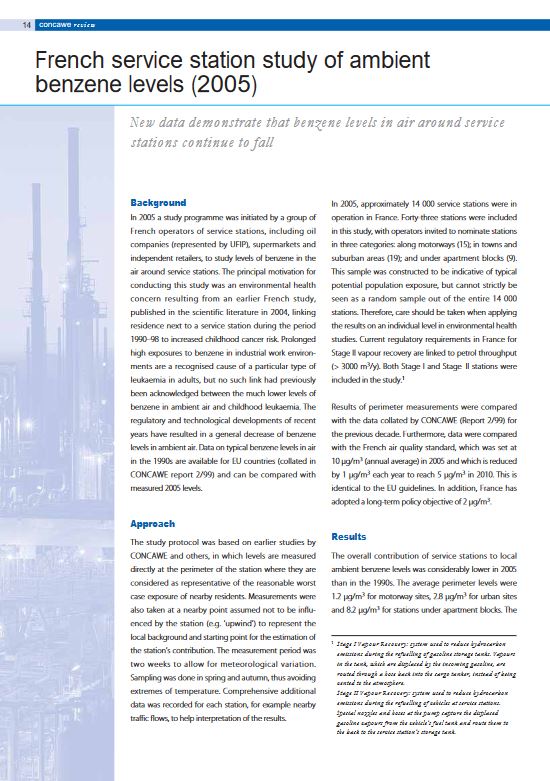
Concawe Reviews
French service station study of ambient benzene levels (2005)
In 2005 a study programme was initiated by a group of French operators of service stations, including oil companies (represented by UFIP), supermarkets and independent retailers, to study levels of...
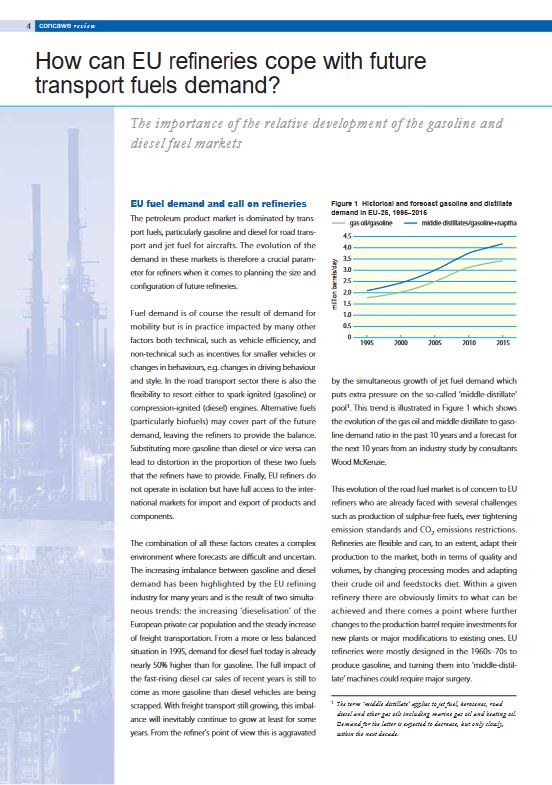
Concawe Reviews
How can EU refineries cope with future transport fuels demand?
EU fuel demand and call on refineries The petroleum product market is dominated by transport fuels, particularly gasoline and diesel for road transport and jet fuel for aircrafts.
The evolution...
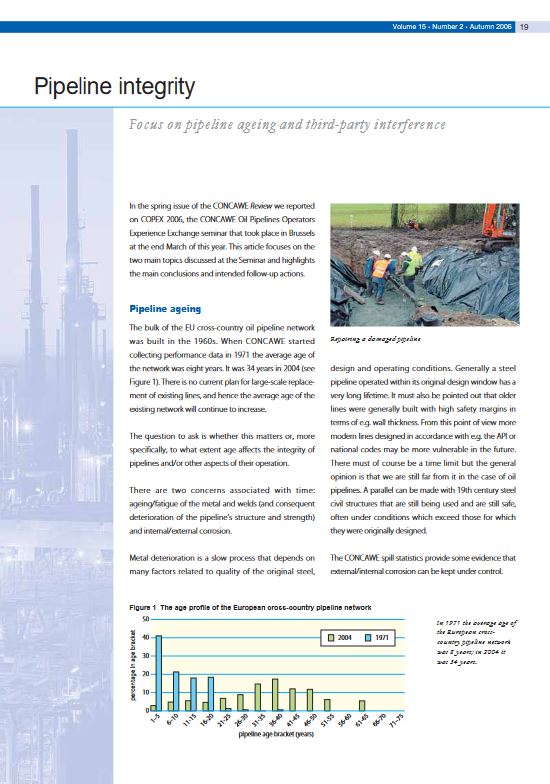
Concawe Reviews
Pipeline integrity
In the spring issue of the CONCAWE Review we reported on COPEX 2006, the CONCAWE Oil Pipelines Operators Experience Exchange seminar that took place in Brussels at the end March of this year.
Th...
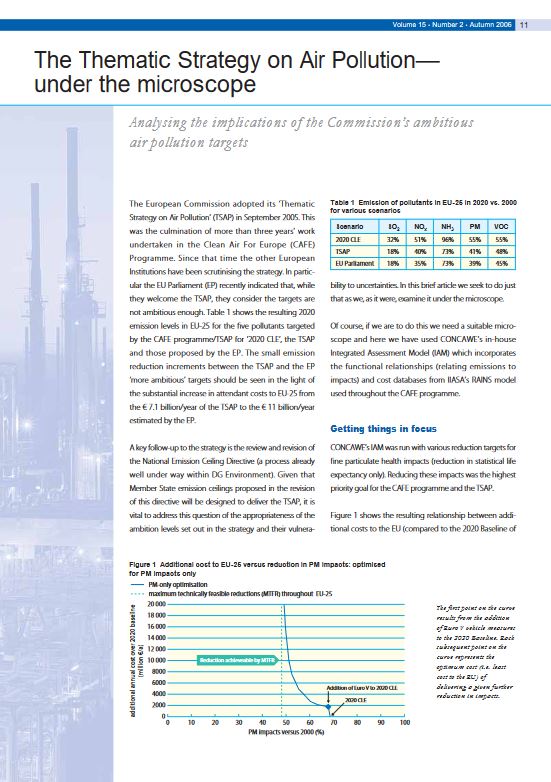
Concawe Reviews
The Thematic Strategy on Air Pollution— under the microscope
The European Commission adopted its ‘Thematic Strategy on Air Pollution’ (TSAP) in September 2005. This was the culmination of more than three years’ work undertaken in the Clean Air For Euro...
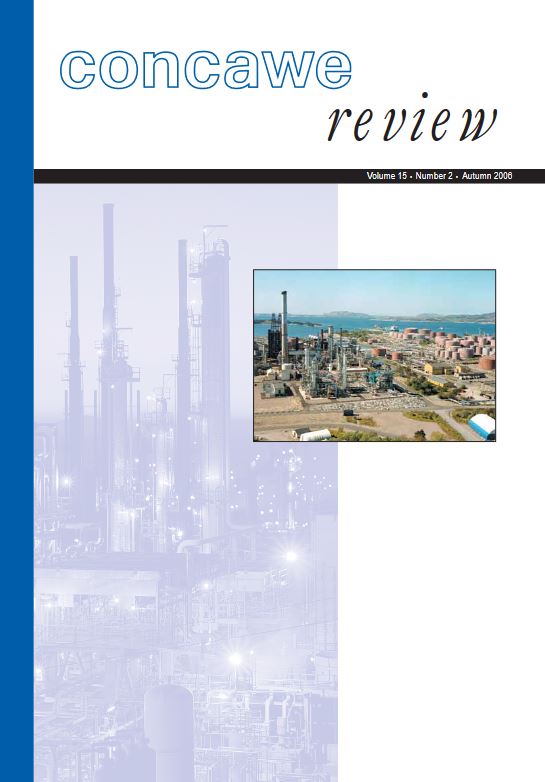
Concawe Reviews
CONCAWE Review – Autumn 2006
Volume 15 • Number 2: In the past two years, a number of European refiners have joined CONCAWE, their principal motivation being to benefit from the work undertaken to prepare for the REACH legislat...
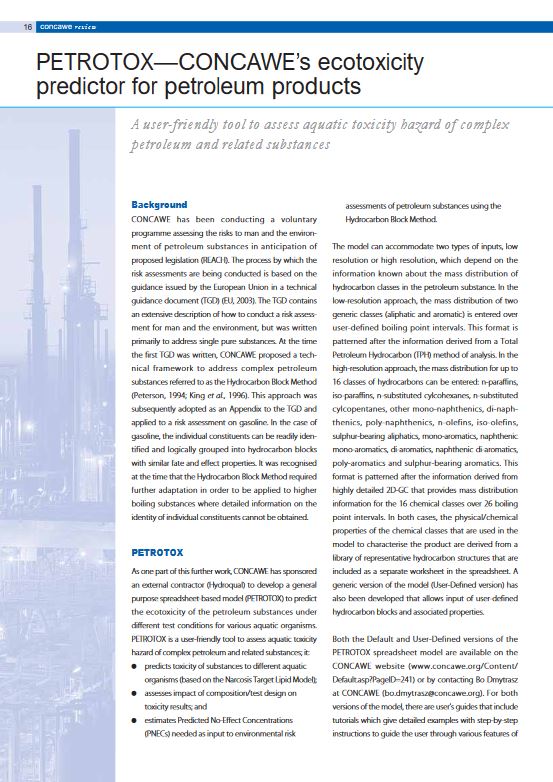
Concawe Reviews
PETROTOX—CONCAWE’s ecotoxicity predictor for petroleum products
CONCAWE has been conducting a voluntary programme assessing the risks to man and the environment of petroleum substances in anticipation of proposed legislation (REACH). The process by which the risk...
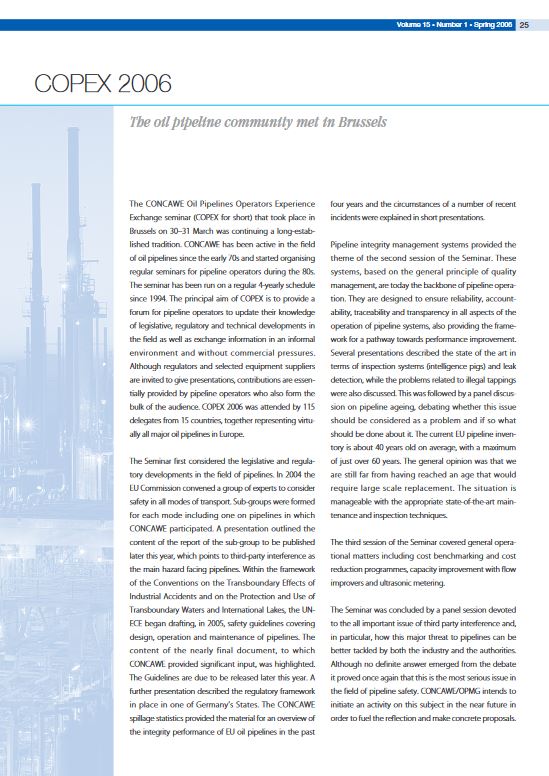
Concawe Reviews
COPEX 2006
The CONCAWE Oil Pipelines Operators Experience Exchange seminar (COPEX for short) that took place in Brussels on 30–31 March was continuing a long-established tradition. CONCAWE has been active i...
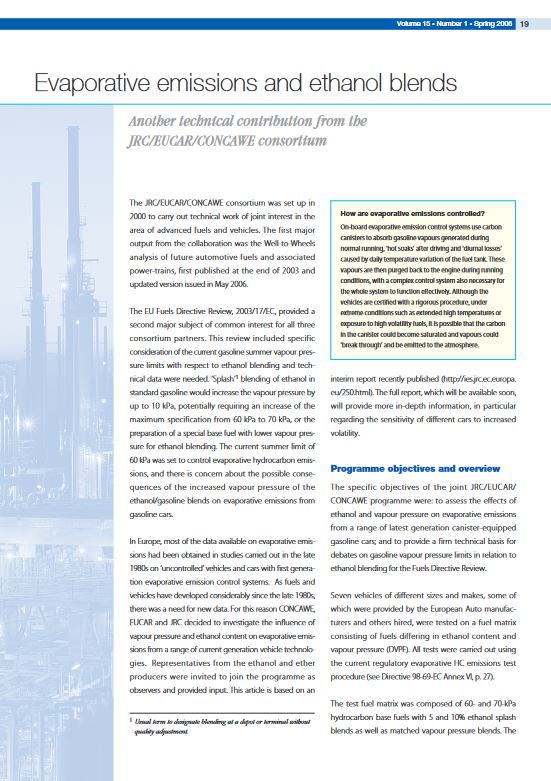
Concawe Reviews
Evaporative emissions and ethanol blends
The JRC/EUCAR/CONCAWE consortium was set up in 2000 to carry out technical work of joint interest in the area of advanced fuels and vehicles.
The first major output from the collaboration was th...
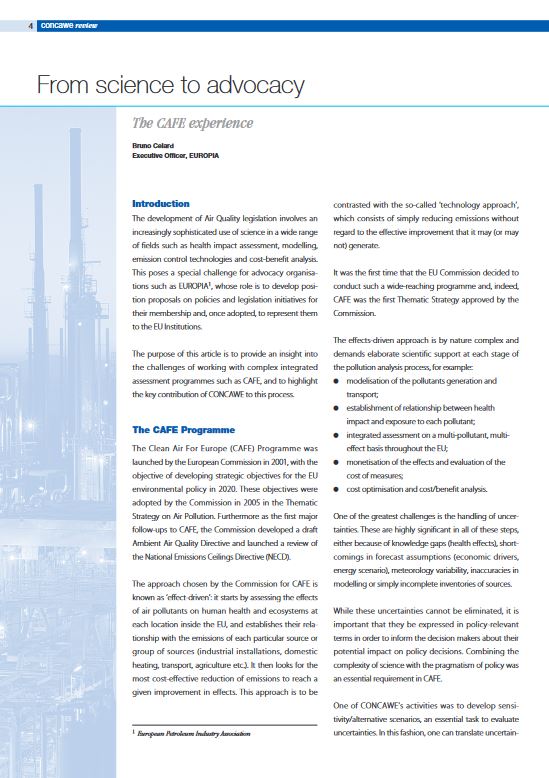
Concawe Reviews
From science to advocacy
The development of Air Quality legislation involves an increasingly sophisticated use of science in a wide range of fields such as health impact assessment, modelling, emission control technologies an...
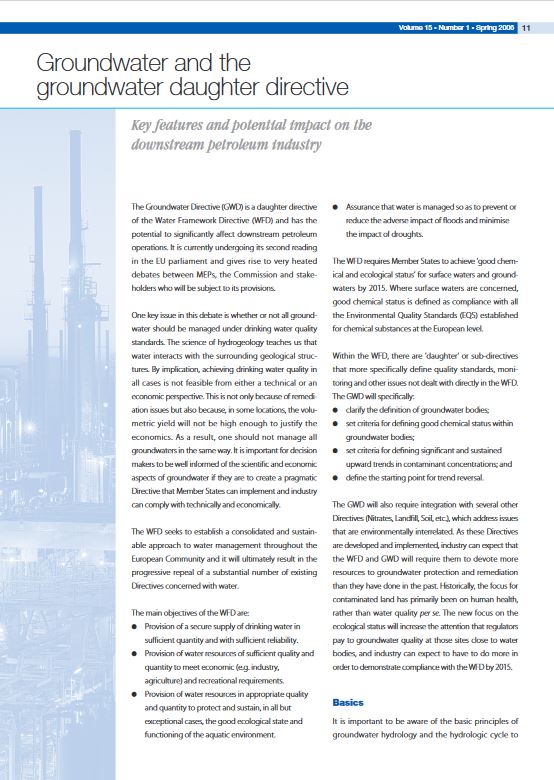
Concawe Reviews
Groundwater and the groundwater daughter directive
The Groundwater Directive (GWD) is a daughter directive of the Water Framework Directive (WFD) and has the potential to significantly affect downstream petroleum operations. It is currently undergo...

Concawe Reviews
Reducing the sulphur content of residual marine fuels
The legislative context Residual fuel is a commodity used by sea-going vessels the world over. The quality specifications of residual marine or ‘bunker’ fuels (RMF) result essentially from self re...
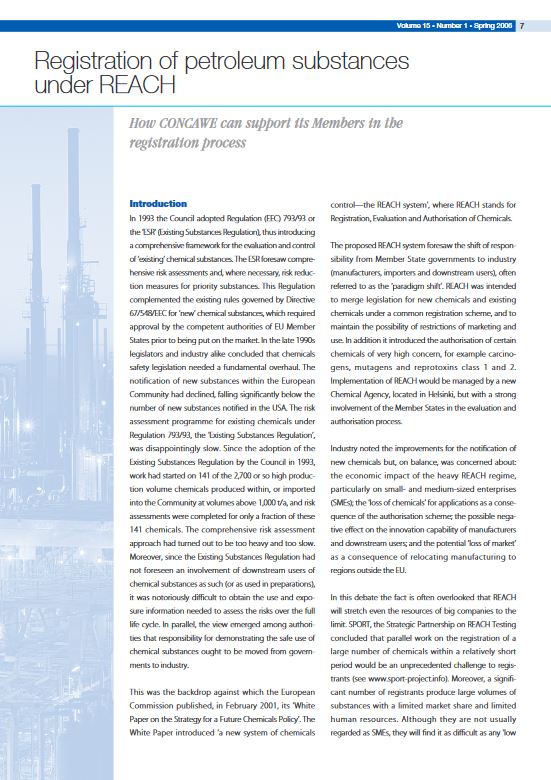
Concawe Reviews
Registration of petroleum substances under REACH
In 1993 the Council adopted Regulation (EEC) 793/93 or the ‘ESR’ (Existing Substances Regulation), thus introducing a comprehensive framework for the evaluation and control of ‘existing’ ch...